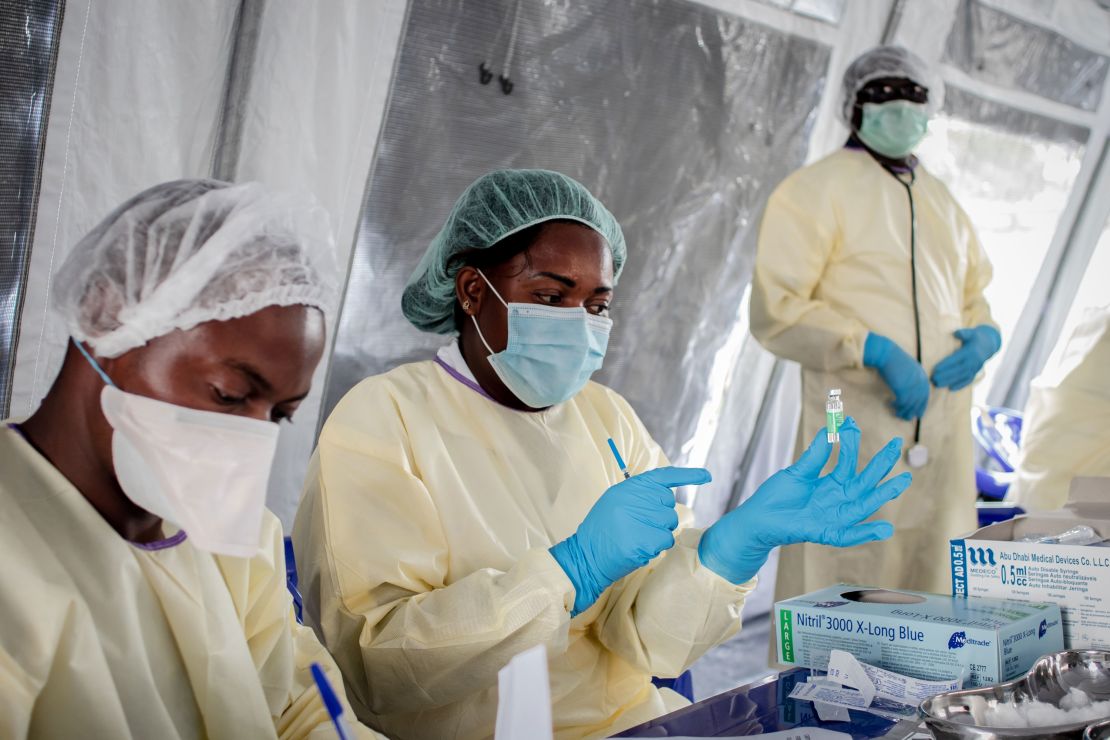Health officials in the United States have said Covid-19 vaccine boosters can begin for older and higher-risk people there. But at least 15 countries around the world – most of them in Africa – have yet to give at least one vaccine dose to more than 3% of their population.
Among them are Nigeria, Africa’s most populous nation with more than 200 million people, and Ethiopia with around 115 million people, as well as Haiti, only about 700 miles from the US state of Florida.
War-torn Yemen – where so far just 1.1% of the population has received at least one dose of a Covid-19 vaccine – was inoculating people at a rate of about 244 doses per day, according to the latest data compiled by Reuters.
The decision by the US Centers for Disease Control and Prevention means millions of Americans can receive booster shots of the Pfizer/BioNTech vaccine in the coming months.
But it goes against calls by the World Health Organization (WHO) chief, Tedros Adhanom Ghebreyesus, for wealthy nations to refrain from boosting their Covid-19 vaccinations until at least the end of the year, to allow more supply to reach poorer nations.

Wealthier nations have been supplying Covid-19 vaccine doses bilaterally and through WHO’s vaccine-sharing program COVAX, but donations have so far fallen short of what was pledged for this year.
Addressing a virtual Covid-19 summit Wednesday on the margins of the UN General Assembly, UN Secretary-General Antonio Guterres highlighted the discrepancy in access to vaccines, saying: “More than 5.7 billion vaccine doses have been administered globally, but 73% have been in just 10 countries.
“High-income countries have administered 61 times more doses per inhabitant than low-income countries. Just 3% of Africans have been vaccinated.” This, he added, increases the risk of new variants emerging from countries where the virus is left to circulate unchecked.
Here are 15 nations which have yet to give at least one vaccine dose to more than 3% of their population, according to the latest figures compiled by Reuters. The proportion of people fully vaccinated in these nations is smaller still.
Democratic Republic of the Congo
- Number of vaccine doses administered (at least): 130,482
- Proportion of population that has received at least one dose: 0.1%
Haiti
- Number of vaccine doses administered (at least): 61,545
- Proportion of population that has received at least one dose: 0.4%
Burkina Faso
- Number of vaccines administered (at least): 166,160
- Proportion of population that has received at least one dose: 0.8%
Yemen
- Number of vaccine doses administered (at least): 322,934
- Proportion of population that has received at least one dose: 1.1%
Benin
- Number of vaccine doses administered (at least): 174,104
- Proportion of population that has received at least one dose: 1.3%
Cameroon
- Number of vaccine doses administered (at least): 452,336
- Proportion of population that has received at least one dose: 1.4%
Sudan
- Number of vaccine doses administered (at least): 1,499,982
- Proportion of population that has received at least one dose: 1.5%
Somalia
- Number of vaccine doses administered (at least): 390,141
- Proportion of population that has received at least one dose: 1.6%
Mali
- Number of vaccine doses administered (at least): 396,027
- Proportion of population that has received at least one dose: 1.6%
Syria
- Number of vaccine doses administered (at least): 533,949
- Proportion of population that has received at least one dose: 1.7%
Liberia
- Number of vaccine doses administered (at least): 113,680
- Proportion of population that has received at least one dose: 2.1%
Nigeria
- Number of vaccine doses administered (at least): 6,255,025
- Proportion of population that has received at least one dose: 2.2%
Sierra Leone
- Number of vaccine doses administered (at least): 221,110
- Proportion of population that has received at least one dose: 2.3%
Ethiopia
- Number of vaccine doses administered (at least): 3,409,507
- Proportion of population that has received at least one dose: 2.3%
Ghana
- Number of vaccine doses administered (at least): 1,623,582
- Proportion of population that has received at least one dose: 2.8%.
Other countries have similarly low rates of vaccination, according to the Reuters figures, but because their rollout data is reported by the number of doses of Covid-19 vaccines administered, not the number of people who have been vaccinated – and because most vaccines require two doses – it is not possible to determine exactly the percentage of the population vaccinated.
These countries include Chad, Tanzania, Madagascar, Niger and Papua New Guinea.
CNN’s Virginia Langmaid contributed to this report.

